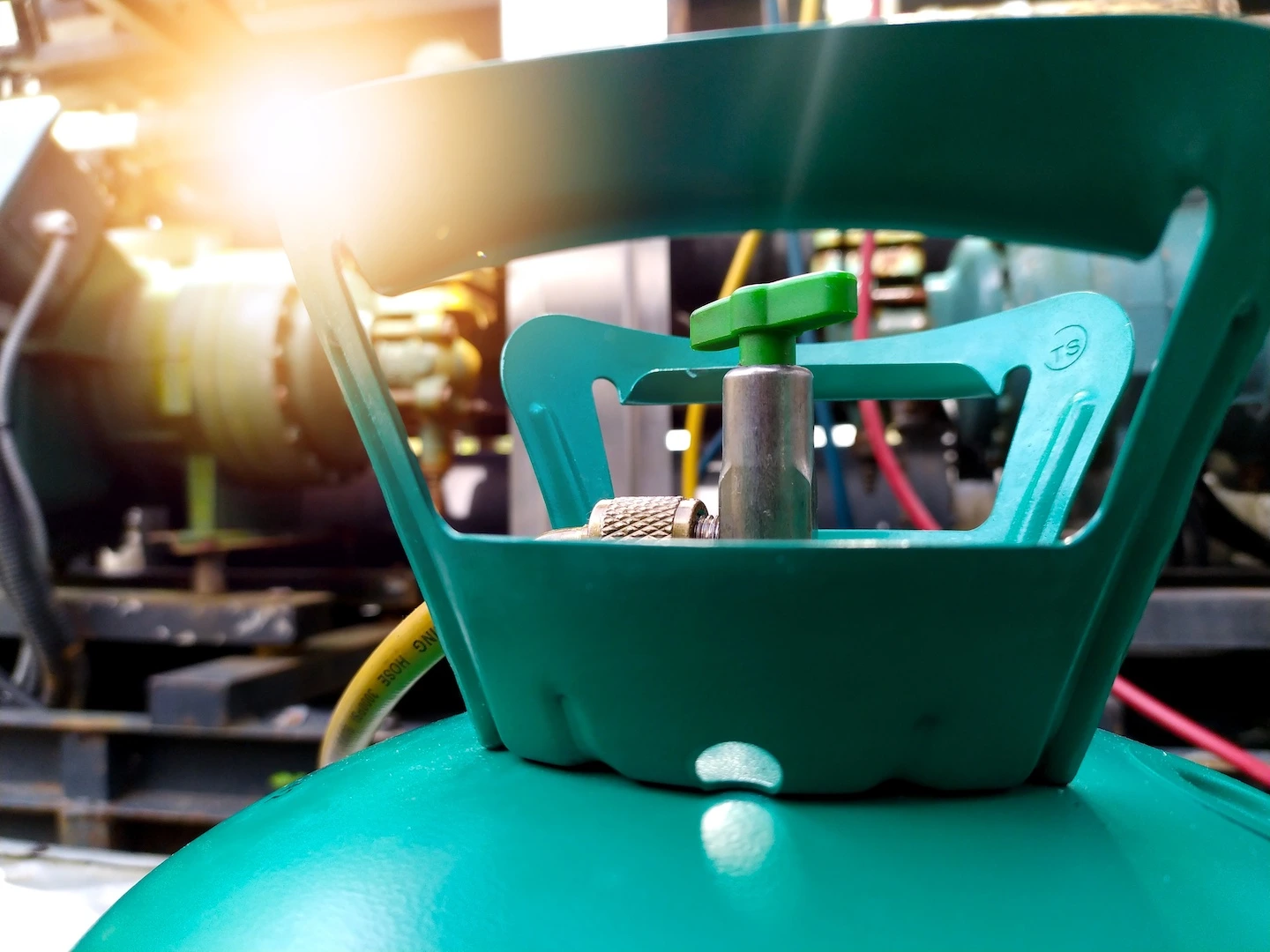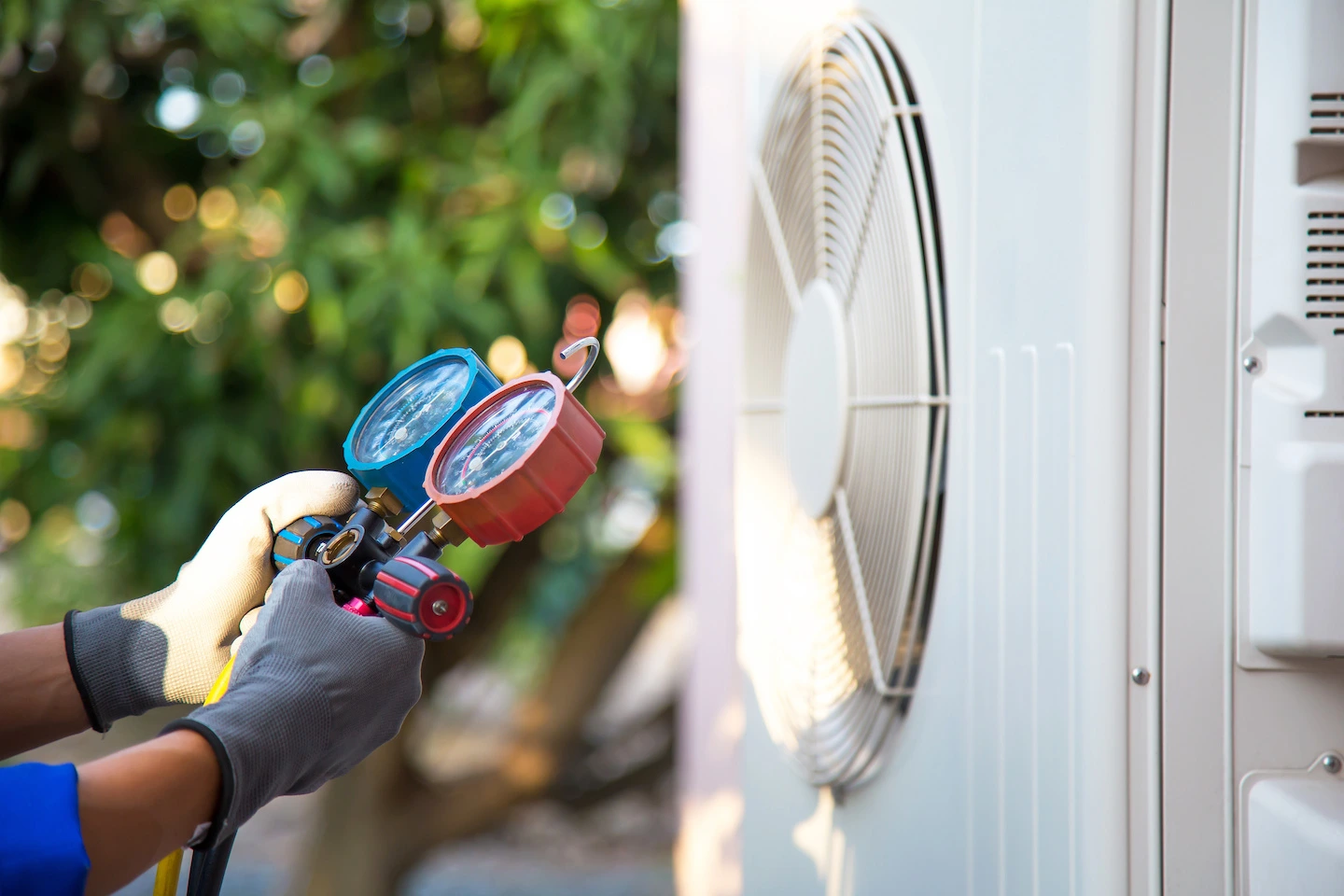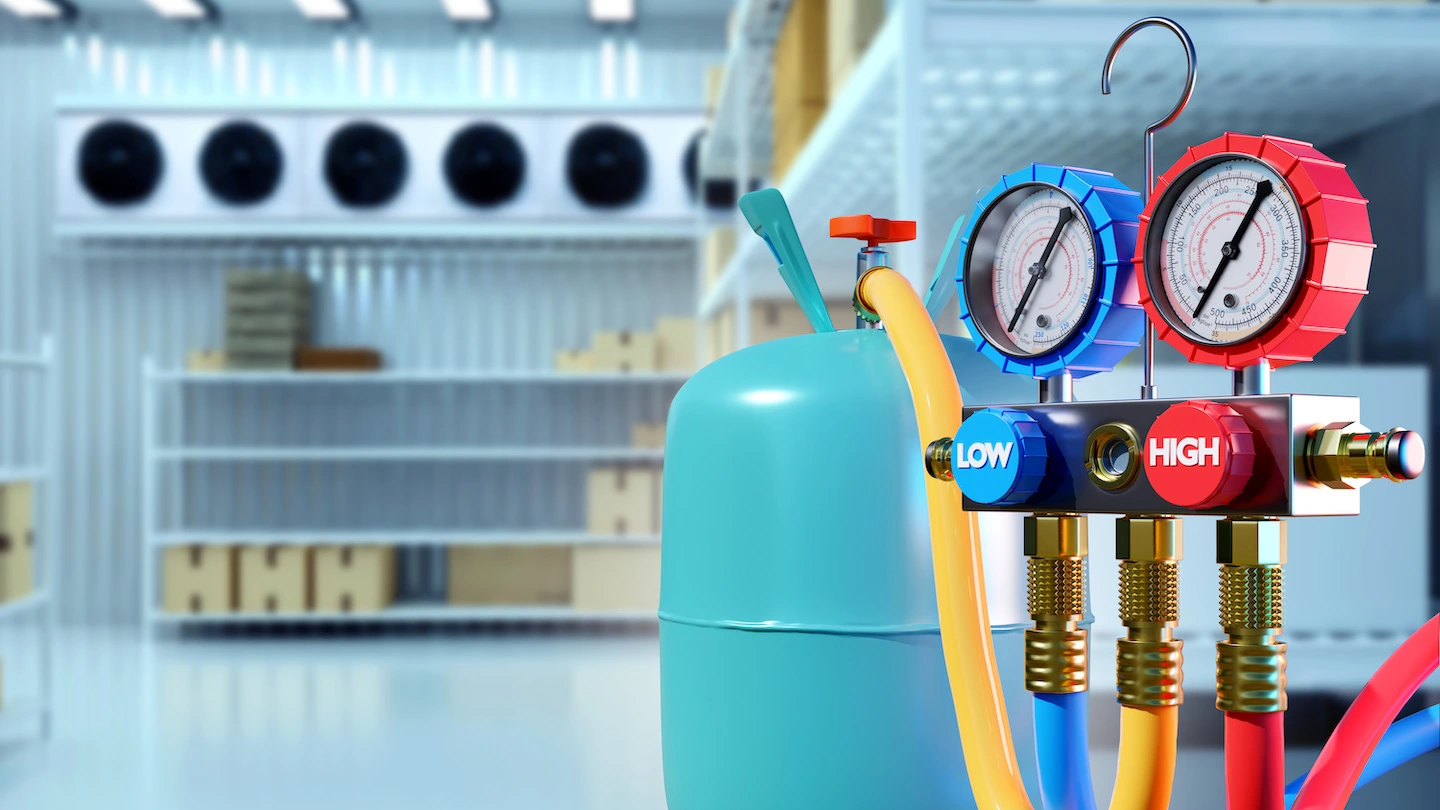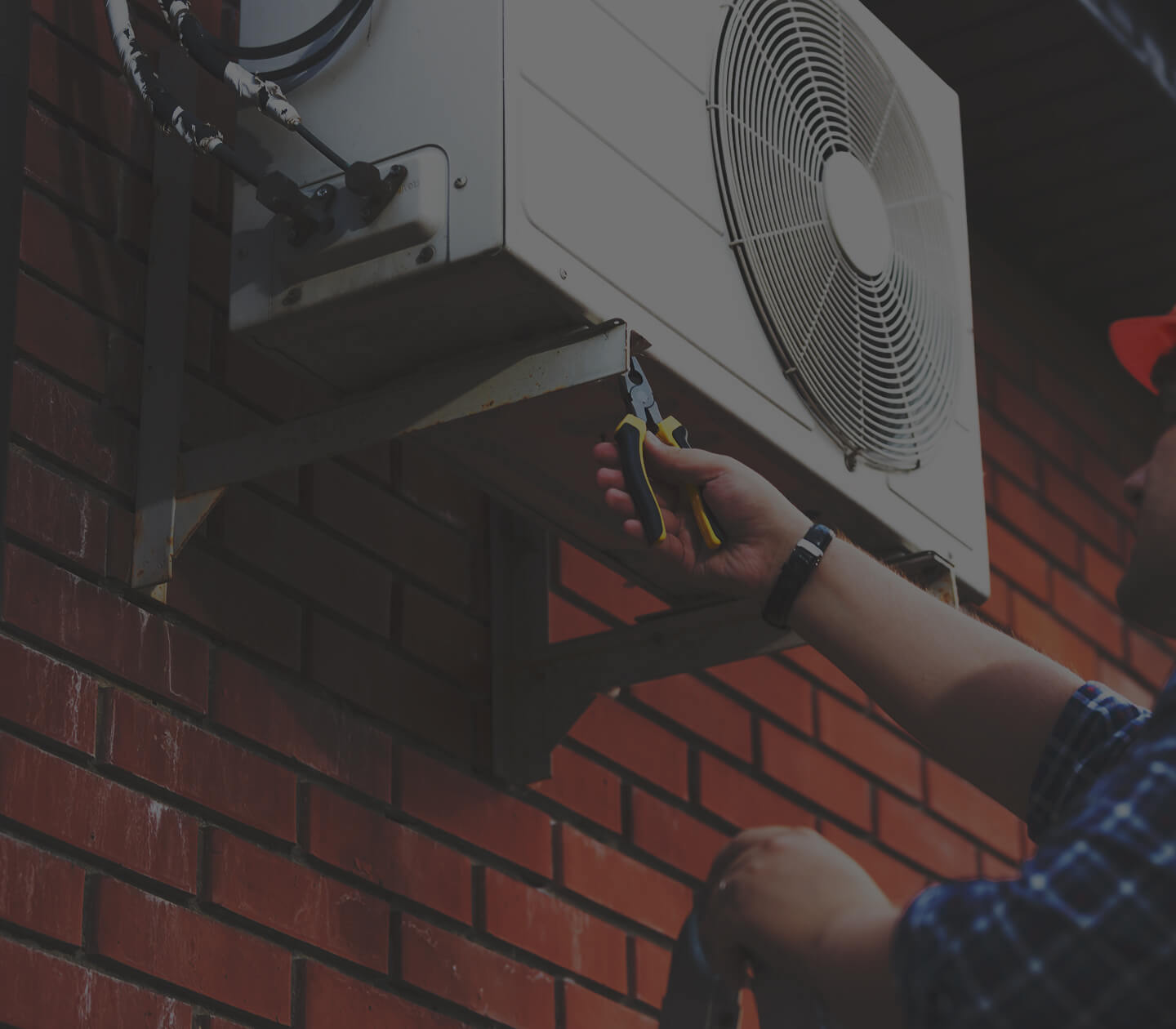When it comes to maintaining your air conditioning system, understanding AC refrigerant is essential.
At Lee’s AC in Lafayette, LA, we’re committed to ensuring your HVAC system runs smoothly and efficiently. In this blog, we’ll explore what AC freon and refrigerant are, why they’re important, and how Lee’s AC can help you with all your HVAC needs.

Refrigerant vs. AC Freon
“AC Freon” and “AC refrigerant” are often used interchangeably, but they have distinct meanings:
AC Refrigerant: This is a general term that refers to the chemical compound used in air conditioning (AC) systems to absorb and release heat, enabling the cooling process. Refrigerants can be of various types and are not limited to a single chemical. Common refrigerants include R-22, R-410A, R-134A, and others.
AC Freon: This is a specific brand name for a type of refrigerant developed by DuPont (now Chemours). The term “Freon” has become a common way to refer to certain refrigerants, particularly R-22 (Freon-22). However, not all refrigerants are Freon, and newer systems often use different types of refrigerants, such as R-410A, which is not referred to as Freon.
Key Differences:
- Refrigerant is a broad term encompassing all cooling substances used in AC systems.
- Freon is a specific brand of refrigerant, most commonly associated with R-22.
In the past, freon was commonly used as a refrigerant in many HVAC systems. However, due to its harmful effects on the ozone layer, the use of freon (specifically R-22) has been phased out in favor of more environmentally friendly options.
Why Understanding Refrigerant is Important
- System Efficiency: The type and amount of refrigerant in your AC system directly affect its efficiency. Using the correct refrigerant ensures optimal performance and energy efficiency.
- Environmental Impact: Proper handling and disposal of refrigerants are crucial for minimizing environmental damage. Outdated refrigerants can contribute to ozone depletion and global warming.
- Regulatory Compliance: With changing regulations, it’s important to stay informed about refrigerant use and compliance. Mismanagement can lead to legal and financial consequences.

Changes in Refrigerant Regulations
Phasing Out of R-22 (Freon):
R-22, commonly known as Freon, has been phased out due to its harmful effects on the ozone layer. The U.S. Environmental Protection Agency (EPA) stopped the production and import of R-22 on January 1, 2020. While existing systems using R-22 can still be serviced, the refrigerant is increasingly expensive and hard to find, encouraging homeowners to switch to systems using newer refrigerants.
Introduction of R-410A and HFOs:
R-410A is the most common refrigerant used in new AC systems and is more environmentally friendly than R-22, but it still has a significant global warming potential (GWP).
The industry is now moving towards Hydrofluoroolefins (HFOs), such as R-32 and R-454B, which have lower GWPs. These are considered next-generation refrigerants with reduced environmental impact.
AIM Act and HFC Phasedown:
The American Innovation and Manufacturing (AIM) Act, passed in 2020, mandates a phasedown of hydrofluorocarbons (HFCs), including R-410A, over the coming decades. This law aligns with global efforts to reduce the use of high-GWP refrigerants under the Kigali Amendment to the Montreal Protocol.
Transition Timeline:
The transition to lower-GWP refrigerants is ongoing, with manufacturers beginning to introduce systems compatible with newer refrigerants. The market will see a gradual phase-out of high-GWP refrigerants like R-410A, with stricter regulations and higher efficiency standards driving the adoption of environmentally friendly alternatives.
What Happens if My Unit Still Uses Freon?
As of January 1, 2020, the production and importation of R-22 were banned in the United States. While it’s still legal to use existing supplies of R-22, it’s becoming increasingly difficult and expensive to service systems that use this refrigerant.
If your HVAC unit is still using Freon refrigerant, it’s time to start considering a replacement. If your unit still uses freon, you have a few options:
- Continue Using the System: You can continue using your current system as long as it operates without major issues, but be prepared to replace your unit if refrigerant needs to be added.
- Retrofit the System: In some cases, older systems can be retrofitted to use a different, more eco-friendly refrigerant. This option can be less expensive than replacing the entire system, but it’s not always possible or advisable.
- Upgrade to a New System: The most sustainable long-term solution is to replace your old unit with a new one that uses a modern refrigerant. Newer systems are more energy-efficient, environmentally friendly, and often come with better performance and warranties.
Common Issues with Refrigerant
Refrigerant Leaks
One of the most common problems is refrigerant leaks. Leaks can lead to decreased efficiency, increased energy costs, and potential system damage. Detecting and repairing leaks promptly is crucial for maintaining system performance.
Incorrect Refrigerant Levels
Whether it’s due to a leak or improper charging, incorrect refrigerant levels can cause your system to underperform. Ensuring the correct amount of refrigerant is in your system helps maintain optimal efficiency and comfort.
Refrigerant Contamination
Contaminants in the refrigerant can affect system performance and lead to costly repairs. Regular maintenance and professional inspections help prevent contamination and ensure your system runs smoothly.

How Lee’s AC Can Help
At Lee’s AC, we’re dedicated to providing top-notch HVAC services to the residents and businesses of Lafayette, LA. Here’s how we can assist you with all your refrigerant needs:
Our NATE-certified technicians are skilled in installing and handling the latest refrigerant types and HVAC systems. We ensure your system is set up correctly for maximum efficiency and compliance.
We diagnose and repair refrigerant-related issues promptly, from leaks to incorrect levels. Our team is trained to handle various refrigerant types and ensure your system is operating at its best.
Regular maintenance is key to preventing refrigerant problems and extending the lifespan of your HVAC system. We offer comprehensive maintenance services to keep your system in top condition.
We provide a range of indoor air quality products and services to ensure the air in your home or business remains clean and healthy.
Contact Us Today
If you’re experiencing issues with your air conditioning system or need professional assistance with AC refrigerant, contact Lee’s AC. We’re here to help you stay comfortable all year long. Call us today for a free consultation or to schedule a service.
Lee’s AC: Making Lafayette Cooler, One Home at a Time.


